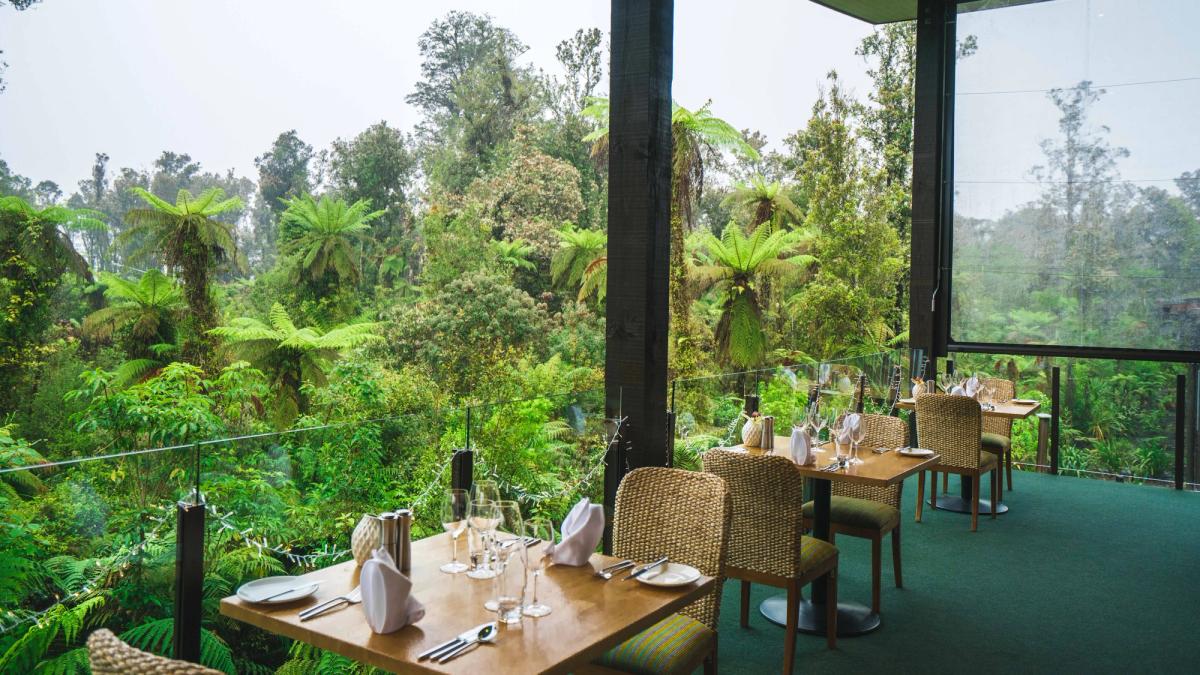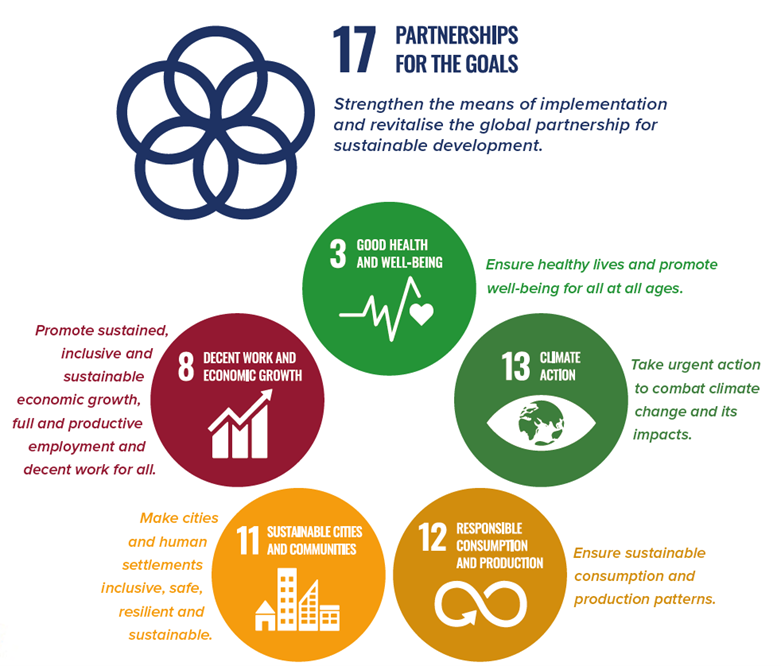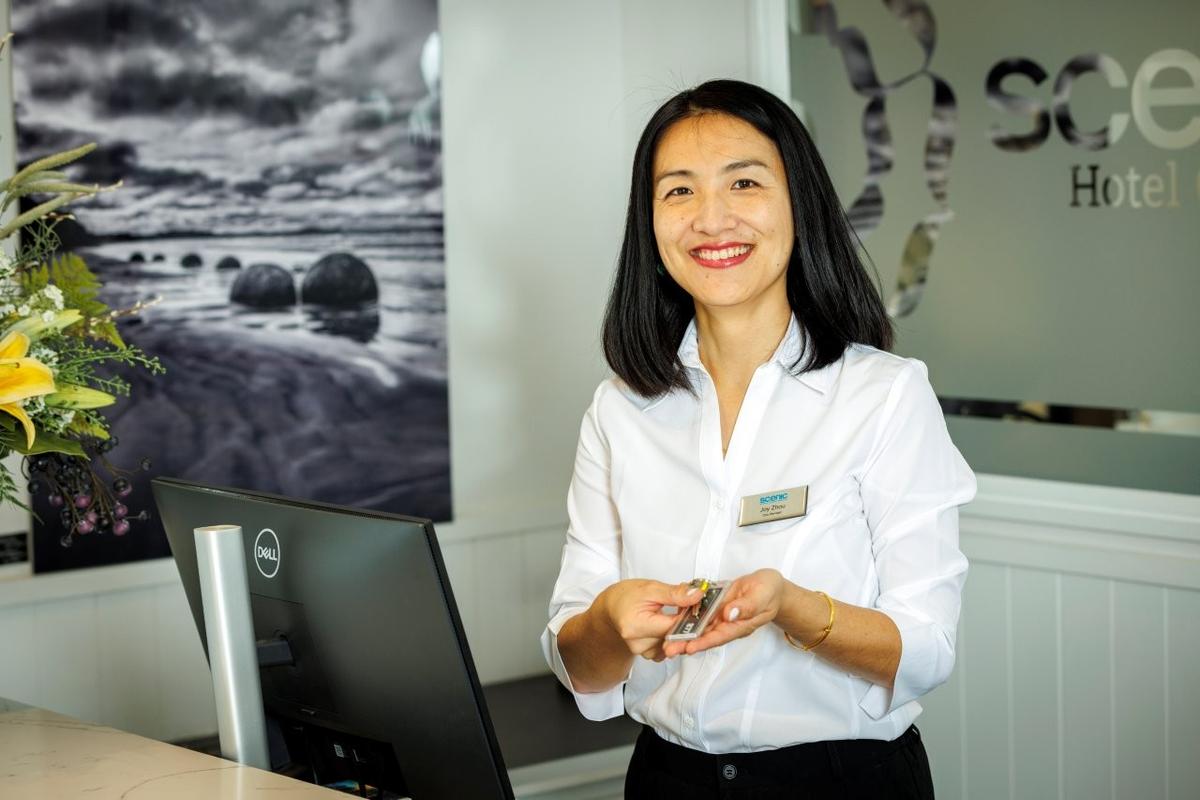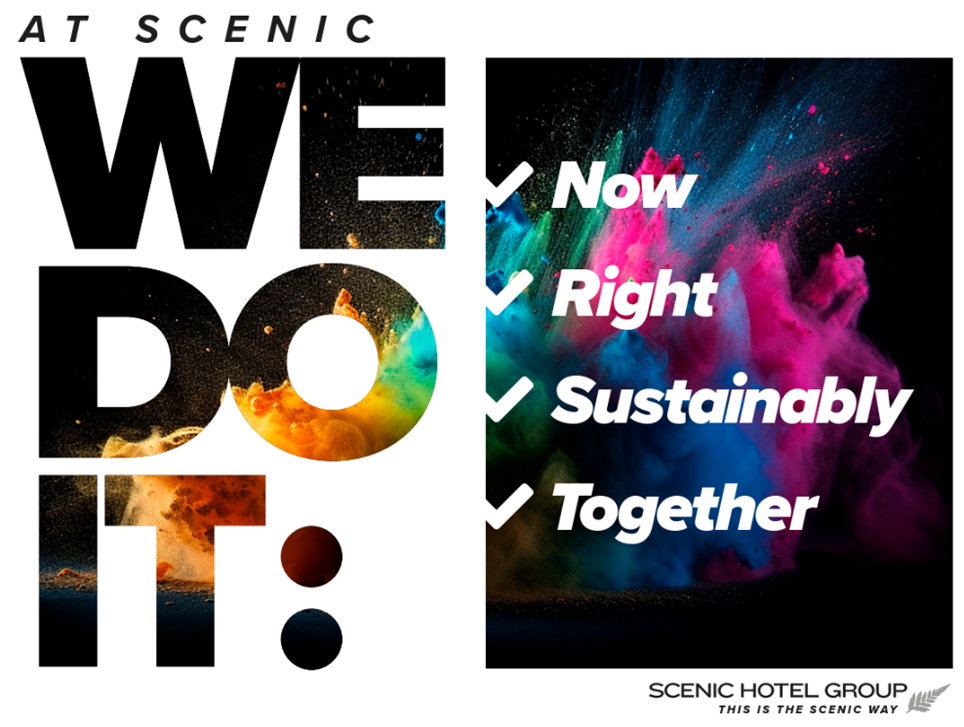
What makes a hotel sustainable? We spoke with Richard Hayman, Head of Property and Environmental Policy Advisor from Scenic Hotel Group, to find out how they’re taking responsibility for their business.
Can you share with us a little bit about your background?
Scenic Hotel Group was established in 1981 and is 100% New Zealand-owned and operated.
It all started for us with a small hotel on the west coast, and now our getaways stretch from Paihia to Queenstown!
We have always been very passionate about Aotearoa and the places/communities we operate in. More recently, we have realised the future is to be more structure-focused around a sustainability journey. Our guests have been telling us they want this, and we want to help answer that call and also show leadership in the industry.
To this end, we brainstormed and came up with our road map – Sustainable Scenic Strategies. We used a workshop and Sustainable Business Accelerator programme led by our consultant Annabel Burgess of Third Era.
6 UN Sustainable Development Goals underpin our strategy and everything we do in the Sustainability space.

I have the professional role of Head of Property and Environmental Policy Advisor here at Scenic. There is a massive cross-over between the built environment and our climate and waste impacts so a neat fit. I am personally and professionally very passionate about tangible and authentic sustainable action, so work to help educate within and outside our business and help the business to make meaningful change.
What initially drove Scenic Hotel Group to start taking climate action?
We think the Hotel Sector as a subset of the wider Tourism sector needs to do more to regain its social license and reduce its impact on the places we love and cherish. A lot of our guests are starting to select their stay taking Sustainability into account. These dual forces and desire lines made it an easy next step for us to progress our Sustainable journey.
After our cross-sectional Sustainable Business Accelerator programme UN SDG 13 was clearly one of our focus areas, and after making some objectives in this space we have become deeply committed to reducing our impacts on climate change.
What was a key moment during your Toitū journey?
Probably the key moment was the decision to commit to a Carbon Reduce journey with Toitū. We had been measuring our carbon footprint via a self-built proprietary carbon measurement system founded on Ministry for Environment voluntary emissions measurement guidelines for a year or two but rapidly realised we needed an internationally valid and independently audited carbon inventory. We needed this to build our confidence to speak openly with our customers, internally and with the wider marketplace around carbon.
Our CEO has been driving a “Scenic Shift” process where we make more and more of our business decisions based on quality data overlaid with a lens of passion and experience. Carbon has been no different. Now we understand our sources more accurately we can make informed decisions about change.
We have only been Carbon Reduce for 3 years, so it’s early days, but 3 reduction initiatives we are really proud of:
- Coal-free July 2022
- Start Jan 2023 signing Meridian for the vast majority of our electricity backed up with (Renewable Energy Certificates) RECs in 2023 for low carbon electricity across most of the group.
- Our first fuel switch project in July 2023 at our Te Waonui from a gas boiler to air to water heat pumps for space and underfloor heating at this lovely resort, is estimated to save 44% of energy related carbon emissions at this hotel.
How do you communicate your climate action and Toitū certification to clients and guests?
We use:
- Our website Sustainability Initiatives
- Collateral and posters in our properties
- Newsletters
- Social media
We also sell Carbon Neutral Room nights with a massive 500% lift in uptake since we made it mandatory for all inbound wholesales to Offset their stay with us. This is a popular product which we take as a bit of yardstick for customer sentiment. We have only had the confidence to offer this product at scale with the underpinning of an amazing offsetting partner Forever Forests / Carbon Click and the strength of the Toitū audit process to verify our carbon inventory.

With a large team across the country, how do you make sure everyone is a part of your decarbonisation journey?
This is one of our biggest challenges and education and engagement are a key focus across the wider staff. A few steps we are taking are:
- Each hotel has a Sustainable Action Plan which is all about local action delivering to the national Sustainable Scenic Strategies.
- We have our Ella training system with some Sustainability Modules for people to engage with.
- We have an Annual Report on performance against our strategy by a third-party consultant which includes a survey of the full staff and interviews with selected staff.
- We have visiting speakers and internal seminars demystifying concepts like Renewable Energy Certificates, offsetting, and carbon footprint.
- All staff contracts have sustainability discussed as part of the job description
- We have a service statement which is the guide for how we act for ALL staff with Sustainability as one of the 4 pillars of this:

How has engaging with Toitū changed the way you work?
It is fantastic having the support and knowledge base of Toitū to help us newbies along the journey whilst the rigorous review of the audit process helps us delve deeper into emissions sources and understand our impacts more and more. Then how to reduce those impacts.
Being Toitū Carbon Reduce is opening doors for our business under UN SDG 17 – partnerships for the goals. We are meeting new businesses we did not deal with before our Sustainable Scenic Strategies was launched and this is fostering innovation and new business streams.
What challenges do you see the hotel and hospitality sector facing when taking climate action?
Hotels are big pieces of infrastructure with energy typically contributing 60-80% of their carbon inventory. Large capital is required to deliver fuel switching away from fossil fuels towards lower carbon alternatives. The removal of the GIDI fund from EECA towards the end of 2023 has remained a significant impediment to the feasibility of fuel-switching projects, for example, centralised boilers. This is a fiscal challenge and we are looking at alternative methods to achieve the same goals.
Do you have any advice or suggestions for those unsure where to start on their carbon management journey?
We always paraphrase our collaborator Annable Burgess of Third Era and say “Messy Action is better than no action”. Just do it, do it now. Making a start is the key step, not getting frozen into stasis due to the scale of the problem and in some cases the complexity of carbon emissions. Get measuring, get help to do so. Start to understand the problem and you may be surprised that the process starts to break down the scale of the issue for you and enables positive and proactive change towards a carbon-neutral future.
